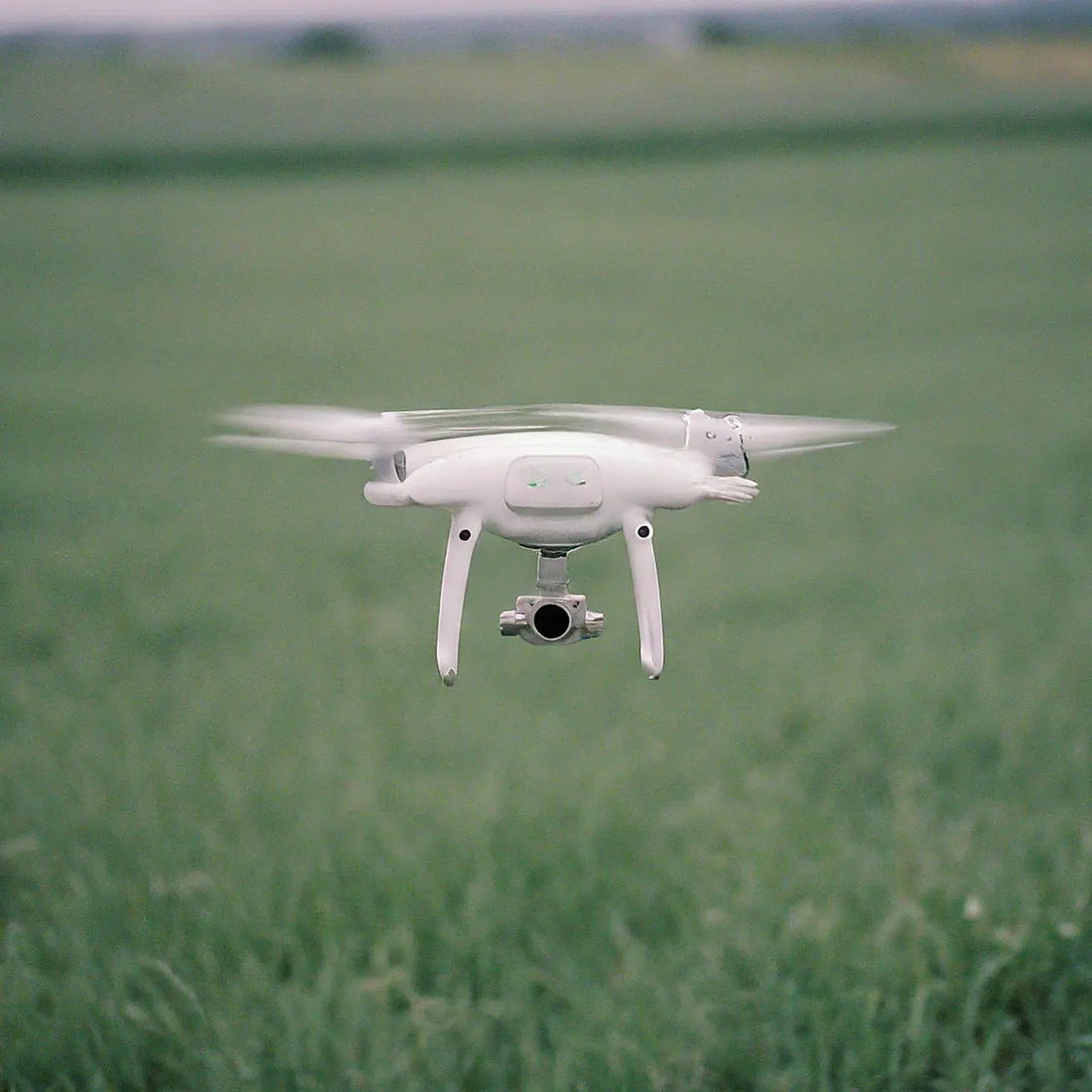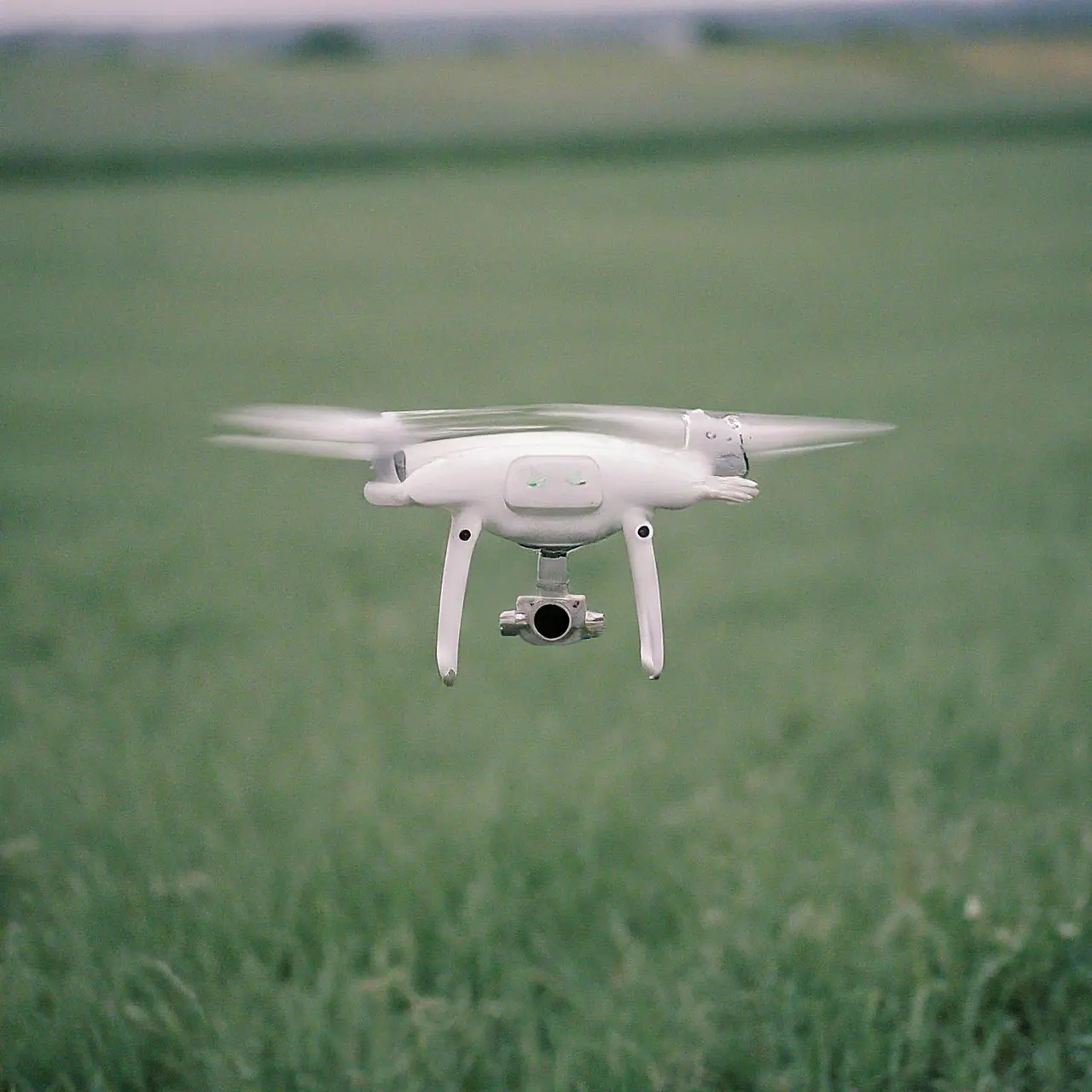
Maximizing Crop Yields with Smart Farming Drones
Share
In the age of technology, agriculture has taken a significant leap forward with the integration of smart farming drones. These innovative tools are revolutionizing the way we approach farming, offering solutions that are not only efficient but also sustainable. Let’s explore how smart farming drones are maximizing crop yields and changing the landscape of modern agriculture.
The Rise of Smart Farming Drones
Agriculture is witnessing a remarkable transformation through the advent of smart farming drones, turning vast fields into canvases of precision and efficiency. These unmanned aerial vehicles, equipped with cutting-edge technology, enable farmers to view their crops from an unprecedented perspective, making informed decisions that directly impact the health and yield of their produce. Through detailed aerial imagery and data analysis, drones offer a bird’s-eye view that is reshaping the way farmers manage their fields, marking a pivotal step in the evolution of agricultural practices.
The benefits of integrating drones into farming are profound and multifaceted. Not only do they facilitate a comprehensive understanding of crop health, moisture levels, and pest infestations through advanced imaging techniques, but they also streamline operations, reduce costs, and minimize environmental impact. With the ability to cover large areas swiftly and detect issues that are imperceptible at ground level, drones are setting a new standard for precision agriculture.
How Smart Farming Drones Work
Smart farming drones leverage a combination of GPS technology, high-resolution cameras, and sophisticated sensors to gather critical data about agricultural land. These drones can swiftly map out vast expanses, collecting information on plant health, soil conditions, and hydration levels across different spectra. By utilizing multispectral imaging, drones are capable of analyzing light absorption and reflectance, offering insights into various crop health indicators that guide farmers’ decisions regarding irrigation, fertilization, and pest control strategies.
Incorporating artificial intelligence and machine learning, smart farming drones are not just collecting data but are also processing it in real-time. This allows for the automatic detection of anomalies and precise application of necessary measures directly from the air. By doing so, drones optimize agricultural inputs, ensuring resources are concentrated where they’re needed the most, leading to increased efficiency and sustainability in farming practices.
Benefits of Using Drones in Agriculture
Precision agriculture facilitated by drones brings a multitude of advantages, including enhanced crop yields through the timely and accurate assessment of field conditions. The ability of drones to identify variations within a field enables farmers to implement tailored solutions, minimizing wastage of water, fertilizers, and pesticides, thus reducing the environmental footprint of farming operations.
Aerial insights from drones also support faster response to issues such as drought stress, nutrient deficiencies, and pest invasions, making intervention more effective and less resource-intensive. This level of management detail promotes healthier crops and larger yields, translating into increased profitability for farmers. Moreover, drones introduce a degree of automation and precision into agriculture that was previously unimaginable, setting a path towards more sustainable and productive farming methodologies.
Case Studies: Success Stories Worldwide
Efficiency in water usage was highlighted in an avocado orchard that utilized drone technology for optimized irrigation scheduling. By analyzing NDVI and thermal images, precise water distribution was achieved, significantly reducing consumption while maintaining, and sometimes even improving, crop yield and quality. This case exemplifies the direct impact of drone technology on sustainability and profitability in agriculture.
In another example, a wheat farm benefited from multispectral imaging provided by drones to detect nutrient deficiencies across the fields. Adjusting fertilization strategies based on drone data led to an improved yield, showcasing the tangible benefits of data-driven farming. These success stories reflect the broader potential for drones to enhance agricultural productivity and environmental stewardship across various cropping systems.
Challenges and Solutions in Drone Farming
While the application of drones in farming offers a bright future, there are hurdles to navigate, including regulatory compliance, the cost of drone technology, and the need for technical expertise. Addressing these challenges involves a comprehensive approach that includes staying informed about changing regulations, leveraging incentives or subsidies for technological adoption, and investing in training and education to build in-house expertise or collaborate with drone service providers.
Furthermore, ongoing advancements in drone technology and efforts from the agricultural sector to develop more accessible solutions are making drones an increasingly viable tool for farmers worldwide. By fostering a community of knowledge sharing and innovation, the agricultural industry can overcome these challenges, unlocking the full potential of drones in enhancing food security and farm management efficiency.
Getting Started with Smart Farming Drones
Embarking on the journey with smart farming drones begins with recognizing your farm’s unique needs and exploring the types of drones and sensors that best fit your objectives. It’s essential to understand regulatory requirements for drone operations in your region and pursue any necessary certifications. With a focus on practical experience and continuous learning, farmers can gradually integrate drone technology into their operations, starting with small-scale trials to gauge effectiveness and adjust strategies accordingly.
Partnering with experts in drone technology can provide valuable insights and support as you navigate the complexities of integrating these tools into your farm management practices. By taking a step-by-step approach to adoption, leveraging online and community resources, and embracing the potential of drones, farmers can significantly enhance their agricultural productivity and sustainability. Discover how smart farming drones can transform your agricultural practices by visiting TJ Aerosense.
The Future of Farming: Embracing Smart Drones
The integration of smart farming drones into agriculture presents an exciting future for maximizing crop yields. By embracing these technological advancements, farmers can achieve more sustainable and efficient farming practices, leading to healthier crops and higher yields. As technology continues to evolve, the potential for smart farming drones in agriculture is limitless, promising a future of innovative farming strategies that are both productive and environmentally friendly. Explore TJ Aerosense for more insights and cutting-edge solutions in drone technology.

